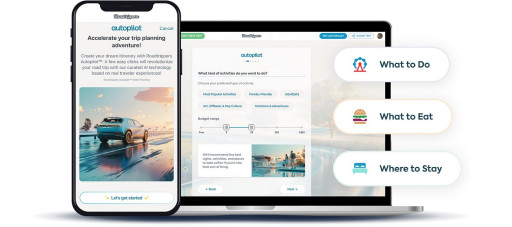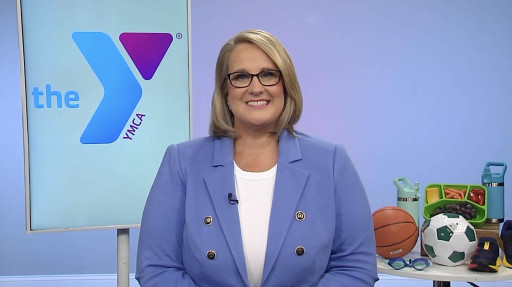BERLIN, February 23, 2023 (Newswire.com) - At the International Conference on Advanced Technologies & Treatments for Diabetes, Diabeloop, a leader in Automated Insulin Delivery technology, announces the launch of a clinical study in adolescents and young adults with T1D, in France, Belgium and Germany. The main objective is the validation of its hybrid closed-loop system that doesn't require meal declarations, a major step towards fully automated solutions.
Major impact on quality of life expected
The open-label, multicenter, randomized, cross-over, four-week outpatient study1 will assess, in real-life conditions, the efficacy of Diabeloop's integrated solution, embarking an Unannounced Meal Management module.
The Automated Insulin Delivery system will also integrate Terumo Corporation's MEDISAFE WITH patch pump, for the first time since the companies announced extended development and commercial agreements a little over a year ago.
The wearable, lightweight patch pump will optimize comfort for the 50 adolescents and young adults with T1D, aged from 12 to 18 years old, enrolled in this study.
Three reference hospitals in France, Belgium and Germany are involved in the trial, whose inclusion phase should be completed by the end of March:
- Necker-Enfants Malades Hospital, Paris, France, Department of Endocrinology, Diabetes and Nutrition led by Prof. Jacques Beltrand, Principal Investigator of the study
- Catholic University, Leuven, Belgium, Pediatric Endocrinology Unit, Prof. Kristina Casteels
- Kinder-und Jugendkrankenhaus, Hannover, Germany, Diabetes Center for Children and Adolescents Auf Der Bult, of Prof. Thomas Danne
"The Diabetes Center AUF DER BULT treats close to 800 youth with type 1 diabetes. Devices for diabetes technology are now a standard at our center. Nevertheless, for many adolescents, it remains a burden to enter carb counts even during automated insulin therapy. We are eager to study new approaches to reduce this burden in our clinical research center like this international collaborative study in adolescents and young adults," declares Prof. Thomas Danne.
An answer to patients' needs, driven by scientific observations
More than a mission, patient knowledge is intrinsic to Diabeloop. Therefore, the company understands the increased complexity of insulin management during adolescence; families constantly report difficulties at school and the influence of the social environment on disease acceptance, for example.
Together with their partner CEA-Leti, Diabeloop confirmed and refined the understanding of the unmet need with a workshop: people with diabetes shared their experience of managing diabetes during their teenage years. The burden of diabetes management and the impact of forgetting to bolus were some of the main concerns shared by the participants.
Those experiences very much support the scientific conclusions that led Diabeloop to develop the project of the study, focused on meal management, for 12- to 18-year-old patients.
A study2 indeed showed that only 17% of young patients achieved the HbA1c goal of <7.5%. Another study3 looked at the effect of missed meal boluses, concluding that "four missed meal boluses per week can result in a 1% increase in HbA1c" while observing that "it is likely that many missed boluses occur in social settings".
While beneficial to all, a fully closed-loop with Unannounced Meal functionality would have a major impact on quality of life for the younger population, who are also prone to be early adopters of new technologies and patch pumps.
Unannounced Meal Management: more automation, more personalization
The Unannounced Meal Management (UMM) module is directly embedded in Diabeloop's self-learning algorithm.
The UMM feature is automatically activated when the algorithm detects a significant blood glucose rise, associated with a high probability that a meal triggered this spike in glucose levels.
UMM enables patients to not declare a meal. Diabeloop's algorithm will detect an unexpected high and correct it by adjusting insulin doses. Combined with its unique auto-learning capacities - optimizing, among others, the meal ratio incrementally - this innovation contributes to feeding Diabeloop's holistic approach, considering the singularities and the personal needs of every individual.
Erik Huneker, CEO and co-founder of Diabeloop, comments: "Every person with diabetes is unique and deserves solutions that will adapt to his or her physiology and lifestyle. That's why a high level of personalization truly matters. There is still some way towards true fully closed-loop solutions but the integration of the UMM module would be a very significant milestone. The efficacy of the UMM will be firstly assessed in adolescents and young adults with diabetes, who profoundly need this major improvement, but it will be generalized and implemented in all of Diabeloop's AID solutions in the near future".
The development of the Unannounced Meal Management (UMM) and the design of the clinical study for T1D adolescents and young adults have been supported by funding from EIT Health and the consortium members.4
____________________
About Diabeloop
Diabeloop's mission: Making innovation accessible to people living with diabetes, improving clinical results while relieving them of their constant mental burden.
Created in 2015, Diabeloop offers AI-based, personalized solutions to improve clinical outcomes for people with diabetes while relieving them of their constant mental burden. DBLG1 System, Diabeloop's first medical device for automated insulin delivery (AID) and DBL-hu, its solution for highly unstable Type 1 diabetes management, are both CE-marked and being deployed in Europe.
Diabeloop completed its Series C financing round in June 2022, securing 70 million euros to accelerate its commercial roll-out and support its sustained growth strategy and its high-impact projects.
Today, Diabeloop gathers the personality, passion, and skills of talented individuals who work hard to improve the quality of life for every person living with diabetes.
------------------
References:
1 NCT04725591
2 Miller KM Diabetes Care 2015;38:971-978
"The American Diabetes Association (ADA) HbA1c goal of <7.5% for youth was achieved by only 17% and the goal of<7,0% for adults by only 21%" from [Foster et al. Diabetes Technology & Therapeutics, 2019]
3 Pediatr Diabetes. 2010 Nov; 11(7): 498-504. Comeaux SJ, Jaser SS. Autonomy and insulin in adolescents with type 1 diabetes.
4 CEA-Leti, CERITD, RI.SE, Profil, KU LEUVEN.
Contact Information:Stéphanie JÉGU
Global Brand & Communication Director, Diabeloop
[email protected]
Original Source: Diabeloop: Launch of a Multi-Country Clinical Study in Adolescents and Young Adults With T1D

















